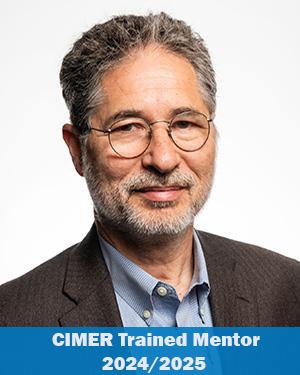Research News
07/14/2021
New $2.5M NIH Grant to Study the Genetics of Coronary Artery Disease
Dr. Smith will study risk genes and other genetic modifiers related to coronary artery disease due to atherosclerosis in an effort to identify therapeutic targets for future investigation.

Jonathan Smith, PhD, has received a four-year, nearly $2.5 million grant from the National Heart, Lung, and Blood Institute (part of the National Institutes of Health) to study the genetic underpinnings of coronary artery disease (CAD) due to atherosclerosis.
"Climbing obesity rates and other factors have helped to keep heart disease as the number one killer of men and women in the United States for many decades, with CAD due to atherosclerosis accounting for a significant number of related deaths," said Dr. Smith. "Understanding the mechanisms that give rise to CAD will be critical for developing more effective therapeutics and diagnostics to help patients."
Previous research has shown that immune cells called macrophages-which help to clear bacteria, debris and damaged cells-play an important role in the development of CAD. In addition to supporting local immune response, they contribute to plaque formation and promote thrombosis.
Macrophages and their role in disease will be an important focus of Dr. Smith's latest project. With this new award, Dr. Smith will study mouse genetics and genomics to identify genes that modulate atherosclerosis risk. The researchers will also aim to identify other genetic modifiers that contribute to or regulate the pro-CAD characteristics of macrophages, including cholesterol metabolism and the release of inflammation-related signaling molecules.
"While genome-wide association studies (GWAS)-which help detect genetic variants associated with a disease in humans-have evolved and become more common, preclinical studies are still important," explained Dr. Smith, staff in the Department of Cardiovascular & Metabolic Sciences. "Variants discovered by GWAS to be significantly associated with CAD actually only account for a small percentage of genetic risk in patients, suggesting much still remains unknown about heritable disease risk."
Dr. Smith and his team will use gene editing technology and mouse models to dig deeper into the genetic underpinnings of atherosclerosis susceptibility. For example, Dr. Smith's prior mouse genetic studies have identified several specific chromosomal regions (called loci) that play a role in the development of atherosclerosis. In this study, the researchers will look to define specific variants in these regions that alter atherosclerosis and gain insight into their mechanisms of action.
"Our ultimate hope is to identify previously undefined pathways and proteins that regulate atherosclerosis towards the development of new methods for risk assessment and therapies to help treat or prevent CAD."
Dr. Smith holds the Geoffrey Gund Endowed Chair for Cardiovascular Research. His lab is also dedicated to uncovering genetic risk for atrial fibrillation, another cardiovascular-related condition.
Featured Experts
News Category
Related News
Research areas
Want To Support Ground-Breaking Research at Cleveland Clinic?
Discover how you can help Cleveland Clinic save lives and continue to lead the transformation of healthcare.
Give to Cleveland Clinic